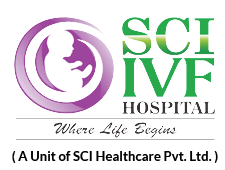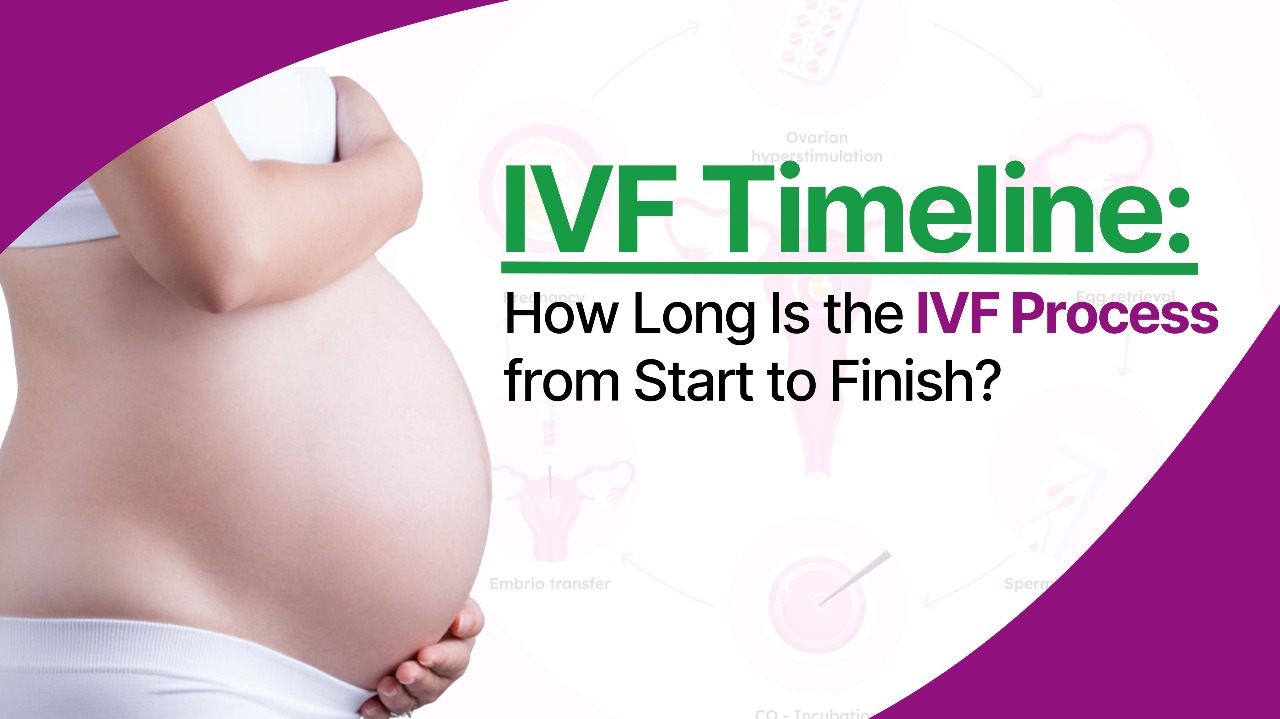Pregnancy is a time of immense anticipation and hope. However, for some, it may come with unexpected heartbreak — especially in the form of a missed miscarriage. Unlike a regular miscarriage, a missed miscarriage — also referred to as a silent miscarriage — doesn’t show any physical signs. There’s no bleeding, no pain, no outward sign that anything is amiss. Your body still thinks the pregnancy is continuing, but inside, life has quietly stopped growing.
It’s a grief that’s often kept quiet — not just over the baby you’ve lost, but over all the moments during which you pictured his or her presence. The sound of that first heartbeat, the flutter of the first tiny kicks, the nursery you may have already imagined. And in this silence, the importance of support, understanding, and compassionate care is only magnified.
In this blog, we’ll sensitively cover what a missed miscarriage is, why it happens, how to spot the less obvious signs, how common is a missed miscarriage and most importantly, what your treatment options are — and how fertility centers like SCI IVF Hospital can help you recover, hope, and take a step forward one day at a time.
What is Missed Miscarriage?
Missed miscarriage, which is also an experience of a miscarriage, is the situation when the embryo or fetal development has ceased, and the body is not aware of the loss. In these scenarios, the female does not show the common symptoms of miscarriage like bleeding or cramping which makes it a silent miscarriage.
This form of miscarriage is normally identified somewhere in the course of a normal ultrasound scan after the non-observation of heartbeat or obvious looks of the embryo diminutive in size, contrasting with the gestational age.
The prevalence of a missed miscarriage
The question most of the couples ask is, How prevalent is a missed miscarriage?
Research has tentatively estimated that 1-5 percent of all births end up in a false miscarriage. Missed miscarriages make about 10-15 percent of all early pregnancy losses. The most popular ones occur in the first trimester- prior to 13 weeks of pregnancy.
The most challenging thing with this kind of loss is the fact that most women still feel the symptoms of pregnancy like nausea, breast tenderness even after the process of embryo growth has come to a dead end.
What Leads To a Missed Miscarriage?
It does not always have a smooth solution, however, there are several factors which can raise the risk:
- Chromosomal Abnormalities
The very most frequent cause. Errors during cell division may produce genetic problems that would make the embryo be unviable.
- Uterine Abnormalities
Abnormalities in relation to the shape or structure of the uterus presence of fibroids or the presence of a septated uterus inhibit normal implantation and growth of the embryo.
- Hormonal Imbalances
Alternatively, deficiency of some important hormones such as progesterone may interfere with normal progression of the pregnancy.
- Autoimmune Disorders
Antiphospholipid syndrome is a condition when the immune system can destroy the embryo.
- Mothers Health Challenges
There are other factors which lead to pregnancy loss which are uncontrolled diabetes, Thyroid disease, over weight or infection.
- Advanced Maternal Age
Women above the age of 35 would easily experience miscarriages due to chromosomal abnormalities that come with age.
- Assisted Reproductive Techniques (ART)
Though IVF (ICSI) is one of the methods of ART and may help overcome fertility challenges, it is also possible that it is also a bit more likely to lead to an early miscarriage, assuming that there were some genetic or uterine issues.
Signs of Missed Miscarriage
This type of miscarriage is so discreet that this is the reason why a lot of women do not suspect that anything is amiss until an ultrasound can tell them one. But what to be on the lookout of:
- Miscarriage signs: Abrupt cessations of nausea, tiredness, or pain in the breasts.
- Spotting: Cramp free light vaginal bleeding.
- Brown discharge: This is also referred to as old blood or sometimes implantation spotting, which can easily be confused.
- Absence of fetal movement (in the advanced period): Absence of growth or development of the fetus at an earlier period may be perceived by health experts even though fetal movement normally begins after 18-20 weeks of pregnancy.
- Ultrasound results: Neither a heartbeat nor growth or an embryo-less gestational sac.
It is also important to always consult a doctor in case of slightest change. When they are detected early it is possible to intervene on time and provide emotional assistance.
Diagnosis of Missed Miscarriage
In most cases, missed miscarriage is diagnosed by:
- Ultrasound Scan: This is the most conclusive one. Pregnancy loss may be seen through the lack of a fetal heartbeat or a non-grown gestational sac since the previous scan.
- Blood Tests: hCG (human chorionic gonadotropin) are tested at intervals of time. It may indicate a miscarriage in case of a decrease in levels or inability to increase them properly.
It is a standard procedure to redo scans or blood tests in a few days by a doctor to ensure that they have got the diagnosis correct before talking of treatment choices.
Management of Missed Miscarriage
Three major treatment options of a missed miscarriage exist:
- Wait and Watch (Expectant Management)
Allowing the body to get rid of the pregnancy tissue gradually. This method can be done within days of several weeks and it must be carefully observed so that there is no possibility of infection or miscarriage which is incomplete.
- Medical Management
Drugs such as misoprostol are used to cause uterine contractions giving the tissue to pass out. This procedure may be done at home or even at the clinic.
- Surgery (D&C- Dilation and Curettage)
It is a minor surgical process to remove pregnancy tissues in the uterus. It is usually carried out when one has a threat of infection, excessive blood loss or emotional desirability to get a faster solution.
SCI IVF Hospital is sympathetic to its patients and help them make every decision during their treatment with love, emotional support, medical experience, and security.
Emotional Stress and Cure
Missed miscarriage has a traumatizing effect on emotions. All these are natural reactions, grief, guilt, anxiety, and fear of the future pregnancies. Couples are advised to undergo counseling or discuss in open mood with fertility experts what could be done next or when to make further attempts when it comes to clarifying that they could be referred to ICSI, IVF or at one of the genetic tests.
Is it Possible to become Pregnant after a Missed Miscarriage?
Yes. A missed miscarriage is usually a one-time incident and quite a number of women end up having good pregnancies. Nevertheless, in case a woman has been exposed to repeated pregnancy loss (two or even more losses), additional studies can be suggested to unveil the causes.
At SCI IVF Hospital, high-level fertility tests, such as hormonal testing, genetic testing, and uterus testing, will help you get to the point of the next pregnancy confidently.
At What Point Should I Need Help?
In case you feel:
- Severe cases of loss of pregnancy symptoms
- Brown discharge or spotting of the vagina
- Weakness or collapse that is strange Vehement breathlessness Vehement shortness of breath
- Fears in regard to fetal wellbeing
- Shows no heartbeat on scan early
Early detection will reduce complications and make it easy to make decisions.
Conclusion: You can depend on SCI IVF Hospital for the best care
A missed miscarriage might be very devastating, yet you do not have to struggle with it. SCI IVF hospital is the most successful IVF hospital in Delhi offers integrated care that embraces the latest methods of reproduction, emotional nourishment, and individual guidance in your fertility experience.
Whatever your stage of planning your first pregnancy or dealing with a loss, you will find our highly trained doctors, nurses, embryologists as well as others are by your side through the entire process. Be it an ICSI or IVF procedure or any other special fertility treatment, we have the success rate and international quality offering infrastructure.
We do not only treat infertility at SCI IVF Hospital, we foster life. That is where any life begins and we are there all the way. Book your consultation to know more!






